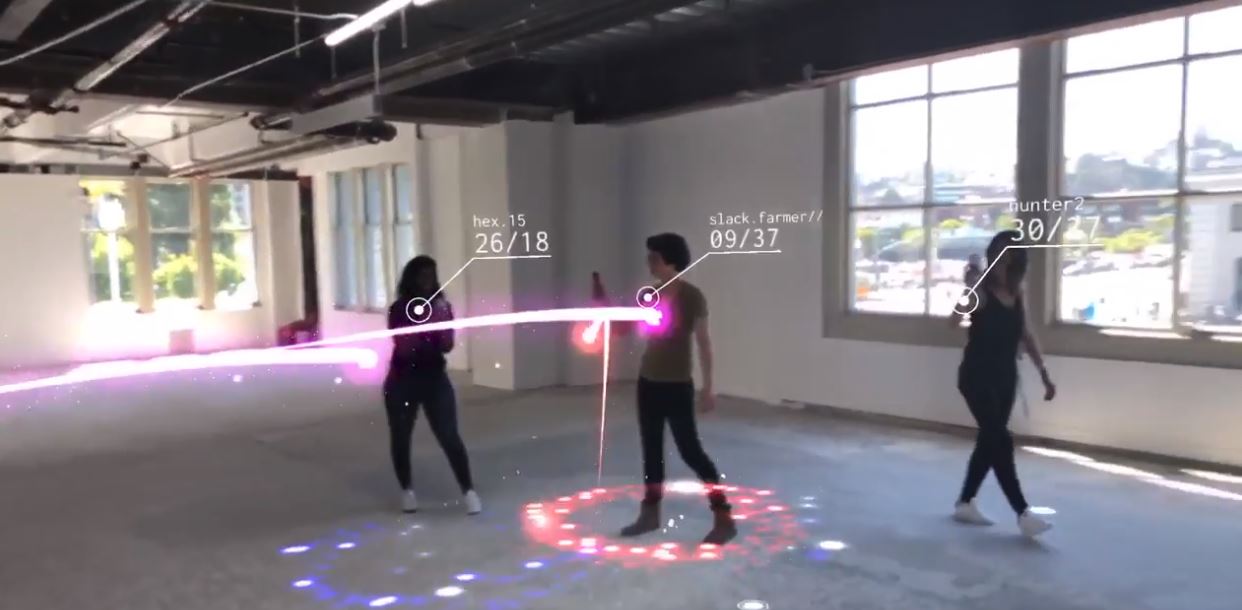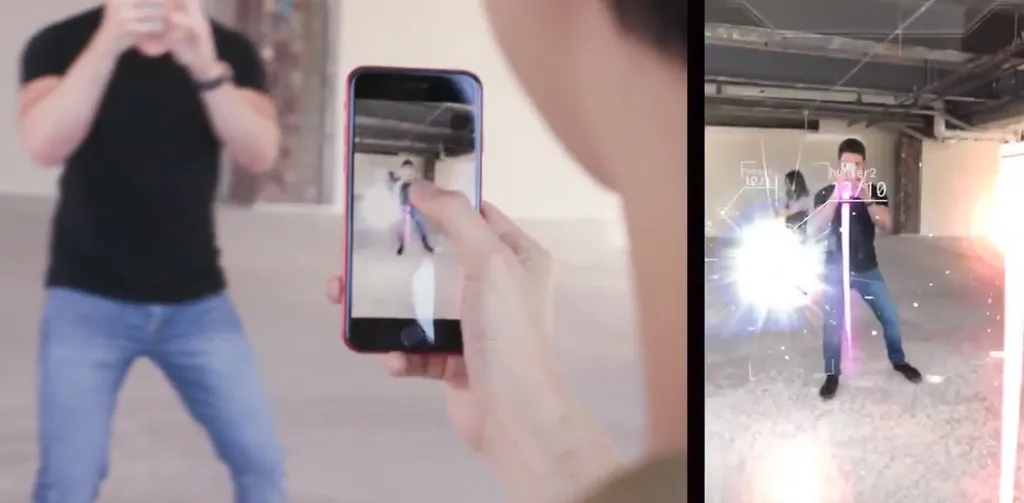Pokemon Go, for all it does right to get people moving and interacting with the world through an AR lens, has a lot of limitations. One of the biggest shortcomings is how it handles the social aspect of the game. There really isn’t a way for you to interact with other players in real-time in the game world at all and even though millions of people play the game every day around the world, it often ends up feeling like you’re all just playing by yourself.
Some new advancements in Niantic’s AR “Real World Platform” could be changing that. At a press event located at their San Francisco, CA offices yesterday I got the chance to go hands-on with a new tech demo they’ve been working on that shows off seamless AR multiplayer.
It worked a bit like laser tag, you can see some footage of it here:
Basically we all ran around this warehouse room picking up white dots on the floor to get ammo. Then I’d tap on another player to shoot homing missiles at them. They couldn’t dodge the missiles once I shot it, but they could block it with a missile of their own. The demo lasted about 90 seconds, after which I was told I did “very well” scoring over 40 hits.
It was…underwhelming. I am hoping this technology will be applied to Harry Potter: Wizards Unite in such a way that real-time wizard duels are possible, but no one was willing to talk about that game at the press event. It felt like a big, giant magical elephant in the room.
The demo allowed for approximately six people to run around, all tracked in real-time, which was neat, but it wasn’t shown or explained in a usable context.
Ironically enough the far more interesting two tech demos they showed at the event weren’t playable. First was some really impressive occlusion features for Pokemon Go made possible via the acquisition of a new company, Matrix Mill, and the other was a cooperative puzzle solving game called Codename Tonehenge. Here’s that footage:
This demo impressed me for two reasons: 1) all players had avatar masks assigned to them in real-time that were animated, meaning when you looked through your phone you’d see the avatars, not human people, and 2) it’s actually collaborative with objects that can be manipulated and interacted with. Now imagine that blown up on a large, city-wide or even worldwide scale using the mapping technology that powers stuff like Pokemon Go.
Instead of people meeting up to sit and flick their phone screens at a park, they could collaboratively solve puzzles and riddles in the real world via their phones. Or in the future, using a lightweight wearable on their eyes/face.
Obviously Neon and Tonehenge are both very much tech demo ideas and not fully realized products, but they represent the first steps towards the “next generation” of mobile AR technology. And what makes it so exciting is that these advancements are happening on the software side with networking and machine learning and AI and cloud computing and don’t require significant hardware changes to realize.

The actual content of the Neon demo was far from impressive, but if the features shown there and in Tonehenge show up in Harry Potter: Wizards Unite, I’ll be very happy.
Let us know what you think of this down in the comments below!


























